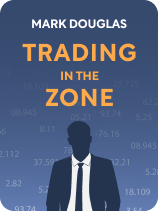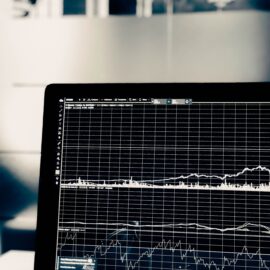

This article is an excerpt from the Shortform book guide to "Trading in the Zone" by Mark Douglas. Shortform has the world's best summaries and analyses of books you should be reading.
Like this article? Sign up for a free trial here .
What is the key to becoming a successful trader? If you were to ask for the most important piece of trading advice, what would it be?
There are many things that a successful trader must have, including knowledge of the various trading tools as well as the asset in question. But no matter how knowledgeable you are, you’ll likely fail if you don’t have a system in place.
Here’s why following a system is an absolute must when it comes to trading.
A System of Rules and Boundaries for Making Trades
To become successful in trading, you need an organized, systematic set of rules for identifying opportunities to buy or sell. You can purchase a system from an expert, or you can define your rules through fundamental and/or technical analysis. Douglas doesn’t make specific recommendations about a system to use, but he says whichever system you choose must have two specifications:
- Precise variables that you use to make objective decisions—The variables will tell you when you should get into the market, get out of the market, take profits, or cut losses.
- A definitive time frame for analysis—Douglas recommends choosing a consistent time frame on which to base all of the variables you use to identify optimal points of entry and exit. This can be any time frame you want—hours, weeks, months, or years: just keep it consistent.
By creating a precise system, Douglas explains, you’ll eliminate any need to make subjective decisions. You’ll also ensure that no extraneous variables interfere in your analysis.
2 Good Strategies for Beginning Traders
Nearly all financial experts agree with Douglas’s trading advice—specifically, that systematic trading is crucial for long-term success. Sticking to a trading strategy with exact variables and time frames allows you to remain focused and consistent amid a huge influx of news and economic data. While Douglas doesn’t promote or describe the details of any particular trading system or strategy, other investment experts outline the pros and cons of various strategies that can help you decide which approach to use. Let’s look at two strategies suitable for novice traders that you can customize with precise variables.
First, end-of-day trading involves trading near the close of markets when it’s clear that prices are going to “settle.” To execute this strategy, you compare current prices to the previous day’s price movements, then speculate how prices will move. This approach requires less time commitment than other trading strategies because you only need to study charts at opening and closing times. However, one drawback is that trades left open for multiple days are more vulnerable to shifts that happen overnight.
Second, position trading involves holding investments for a long period of time, usually months or years. You’d ignore minor price fluctuations, aiming to profit from long-term trends. This approach frees you from having to check price shifts on a daily basis and reduces the potential for mistakes common in more active trading strategies, such as when traders react prematurely to minor price movements. Having said that, you may incur significant losses as a position trader if you ignore minor fluctuations that become full trend reversals.
Whichever trading strategy you choose, Douglas accurately points out that adhering to a strategy will help reduce errors that stem from impulsive, subjective decisions.

———End of Preview———
Like what you just read? Read the rest of the world's best book summary and analysis of Mark Douglas's "Trading in the Zone" at Shortform .
Here's what you'll find in our full Trading in the Zone summary :
- The role mindset plays in stock trading
- The critical importance of embracing risk
- How to become a confident, consistent winner






